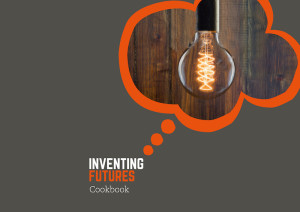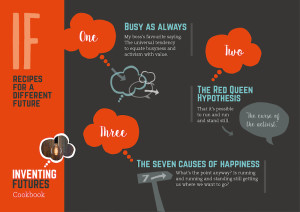
The Inventing Futures Cookbook
What ideas, methods and experience form the basis of Inventing Futures? How can they be applied in practice?
The Inventing Futures Cookbook is being developed as a way of answering those questions by Terry Gibson with designer Mike Thorpe, using an accessible infographic approach.
It contains background, ideas and methods to be applied by groups, communities, organisations and individuals to invent new futures. Anticipated publication date is September 2016

